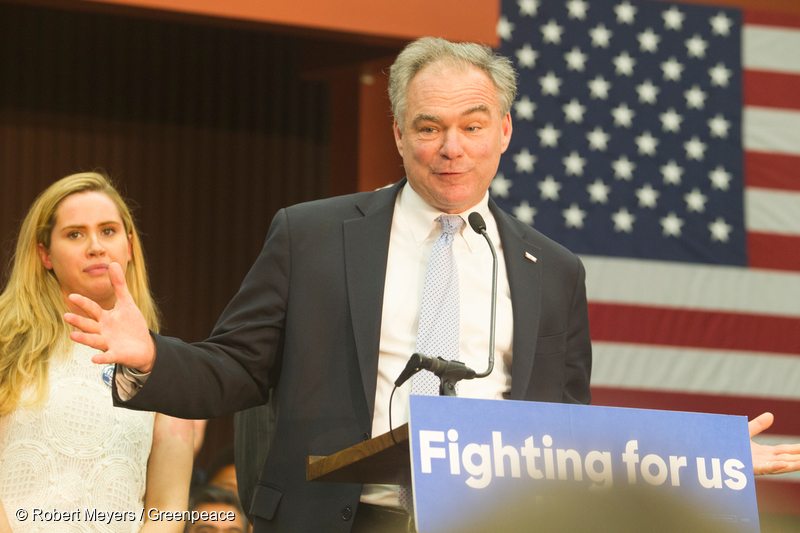For Immediate Release
July 22, 2016
Virginia Senator Must Prove Himself to Progressive Base
In response to presumptive Democratic Presidential Nominee Hillary Clinton’s announcement of Tim Kaine as her Vice Presidential nominee, Greenpeace Executive Director Annie Leonard said:
“Hillary Clinton’s vice president and entire administration should be committed 100 percent to combating catastrophic climate change by keeping fossil fuels in the ground, supporting renewable energy, and protecting our democracy from corporate influence.
“It’s clear from the polling that Secretary Clinton needs the progressive wing to vote in force if she’s going to win in November, so Tim Kaine must show himself from the start that he’ll use his office to be a climate champion. He showed he could do this when he became an early opponent of the Keystone Pipeline, but Kaine’s opposition to regulating fracking under the Safe Drinking Water Act, and his support for natural gas exports and pipelines, prove he still has a long way to go. Clinton’s positions on fracking may have progressed during her candidacy, but the climate movement will continue to push her and her running mate until they pledge to keep all fossil fuels in the ground.”
Contact:
Cassady Sharp, [email protected], 828-817-3328



